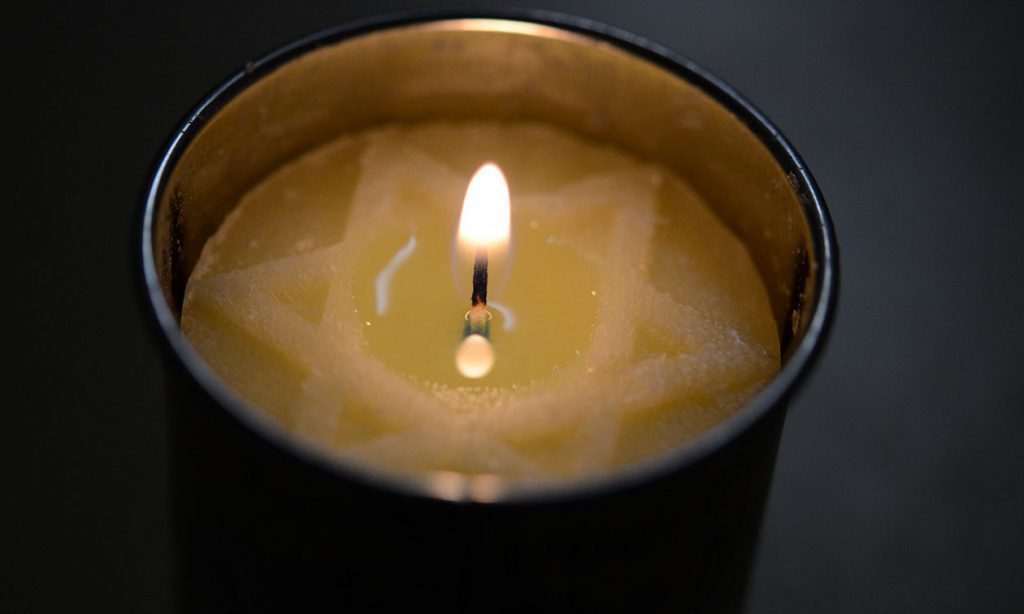
By Alexis Perikleous
It’s been almost one week since International Holocaust Remembrance Day and both faculty and students at Ryerson say there is a need for more education surrounding the Holocaust and other tragic historic events.
Ryerson history professor Arne Kislenko attributes young people’s lack of knowledge about the Holocaust and other historic events to “an ongoing systemic problem in education.”
The CBC recently released a survey that states one in five young people in Canada haven’t heard of the Holocaust or aren’t sure what it is.
“Academically we don’t put a priority on history and instead on things like business and commerce and other things that are supposed to make you money,” Kislenko says.
Kislenko, whose parents both lived through the Second World War – his mother next to a prisoner of war camp – says that being educated about diverse histories allows for individuals to be more empathetic.
“We’re putting a sort of primacy on things like empathy, understanding and caring about one another. How do you think you’re going to achieve that unless you have some recognition of the historical merit?” he says.
Ruth Panofsky, an English and communication and culture professor at Ryerson, also says that learning about these events allows students to become more empathetic.
“Not just empathetic to the Jewish experience, but just empathetic generally,” she says. “To learn about this moment in history and its lasting trauma is to make people understand that we’re all human beings and we’re all connected.”
Panofsky, who grew up in a Jewish community, says she is proud of her heritage and tries to incorporate Jewish literary works into her courses whenever she feels it is appropriate.
“The literature that addresses or comes out of the Holocaust experience, by writers who are directly affected by it and by writers who were not, is so incredibly rich and profound and it has a wide and universal reach,” she says.
Although she is comfortable teaching Jewish literature and discussing the Holocaust with her students, Panofsky recognizes that this may not be the case for all high school teachers or professors.
“High school teachers are not required to teach the Holocaust – that is up to individual teachers as to whether or not they’re going to deal with that subject,” she explains. “And of course if you don’t feel that you have the preparation or the knowledge to deal with that kind of material, it’s a bit daunting.”
Hillel Ryerson’s current president, Geoffery Handelman, agrees.
“On one hand I think yes, it is a little surprising someone doesn’t really know what the Holocaust is considering it was such a massive occurrence,” he says.“But on the other hand it’s not necessarily widely accessible to people if you grew up outside of the Jewish bubble per se. It’s probably not taught in school very much or you hear little tidbits of it but it’s not something that’s very significant to you.”
Hillel Ryerson holds an annual Holocaust Education Week, during which it hosts guest speakers, survivors and professors to help educate students. Handelman also says they partner with various student groups throughout the year to learn about other cultures’ histories and tragedies.
“Any genocide in the world and any sort of negative historical occurrence should be taught because we should learn about everything we possibly can, just be more knowledgeable and constructive human beings,” says Handelman.
While there is a lack of knowledge surrounding the Holocaust, Tomaz Jardim, a history professor at Ryerson, explains that there is even less education on other, lesser-known genocides.
“I’ve always said, I think this slogan ‘Never again,’ I actually find in some ways offensive. Because I think it fails to recognize how it has happened again and again and again. And I think ‘Never again’ really doesn’t mean anything,” he said.
Jardim teaches a Ryerson history course called “The Holocaust,” which offers an in-depth study of the historic event. However, he still touches on other and more recent events, to show his students that it has, in fact, happened again.
“In my course, for instance, we all finish (by) speaking about the Rwandan genocide. I think it’s vital to not keep it locked in the past and to make sure that we do connect the dots to other events which I think deserve equal attention,” he said.
As a historian who teaches a number of diverse courses such as “History of Terrorism,” “World Conflict” and “South East Asia – War and Peace,” Kislenko also thinks there is a plethora of historic events that people are extremely uneducated or even unaware of.
“I’m always amazed at how some really extraordinarily violent moments in human history are totally unknown to us. Like it’s amazing,” he says.
“The Great Leap Forward in China. You know everybody sort of passes over China, but it’s the largest single famine in human history and killed somewhere in the neighbourhood of 30 million people. Which is five times the number of the Holocaust,” he said.
Kislenko says that he wishes every student completing a post-secondary education would be required to take a history course. He thinks it would make people more empathetic and offer them a better understanding of the present.
“Not just because I want to see more people dig history, but because it’s better for them and better for society,” he says.

